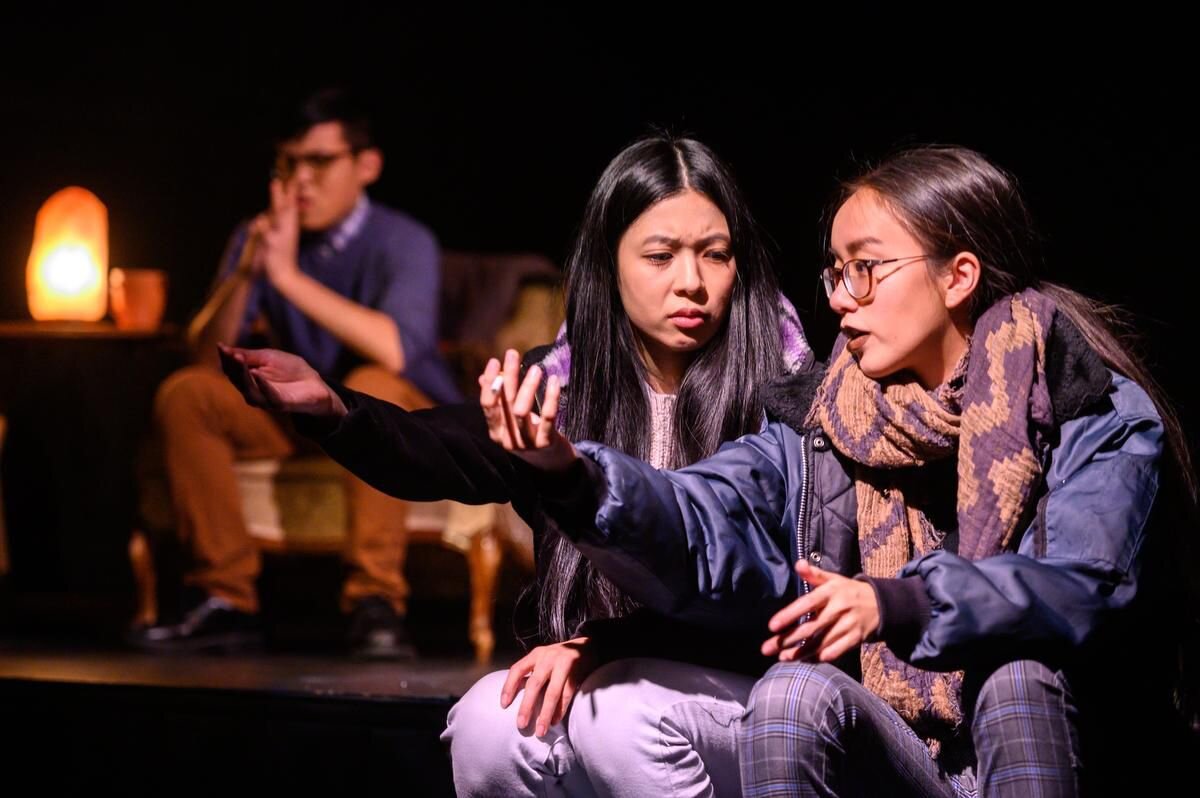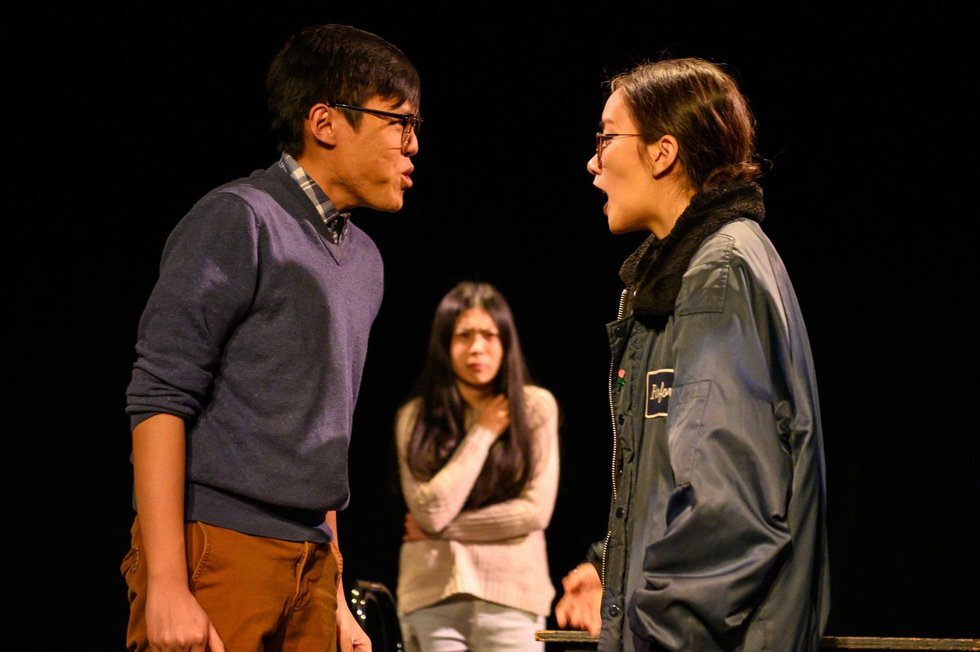Growing Pains: Snippets from the Messy Reality of a Chinese-Vietnamese-Canadian Upbringing
Written by Julie Phan
DOUBLE BILL: FINE CHINA & A PERFECT BOWL OF PHO | BY JULIE PHAN & NAM NGUYEN | DIRECTED BY JULIE PHAN & GIANNI SALLESE
image: fu-gen theatre
Over time I noticed the gaps in my experiences compared to other full Chinese kids: they would talk about taking trips to China to visit family, while I would reflect on the fact that no living member of my family has ever been there since my grandparents fled in 1949. While the rare opportunities I had to eat traditional Fujianese cuisine were tasty, it never feels like home as much as my mother’s Southern-Vietnamese style cooking does.
Ironically, it feels like my father’s efforts to ground me in a singularly Chinese identity made me even more confused around what I actually was. I think it likely stems from his upbringing as a Chinese kid in Vietnam, and the tension that existed between the two ethnic groups at the time. In any case, he doubled down on his own identity as a Chinese person during his formative years and with me as an extension of himself, doubled down on the Chinese part of my identity. I grew up feeling like I wasn’t allowed to celebrate both sides of myself because I was outright prevented from participating or acknowledging my Vietnamese heritage. I grew resentful of being alienated from my own family in Vietnam, who I don’t have the language skills to communicate with, and from my local Vietnamese community, because I was only ever allowed to socialize with other Chinese kids.
julie in áo dài, a traditional Vietnamese garment in its modern iteration formed from its roots in traditional Ming Dynasty Chinese clothing and French aesthetics | image by Tien Chang (IG @sklervy)
It makes sense to me that he would still strongly associate his identity with being Chinese, even as he arrived in Canada as a Vietnamese refugee. He grew up in a Chinese neighbourhood in Saigon, exposed to various Chinese cultures, languages and peoples; his upbringing in this Chinese neighbourhood in Vietnam allowed him to gain fluency in Cantonese, Mandarin, Hokkien, and Teochew. He grew up with a pan-Chinese identity that was also rooted in the idealized perspectives of my grandparents’ experiences there as members of the upper class prior to 1949; while the Vietnam he grew up in is rooted in wartime memories. His perception that Vietnam is a poor and struggling country is contradicted by Vietnam’s current rapid economic growth and modernizing cities; and the Chinese identity he feels connected to is different from the self-construction of people who have lived to experience the major shifts around life in China under CCP governance. When we are from a place we feel connected to, we become strongly attached to our ideas of what it was like when we or the people who are closest to us were there. It results in nostalgia for things that once were but don’t necessarily exist anymore; because the places we come from continue to change culturally long after we leave to go elsewhere.
When I think about preserving my family’s legacy and cultural heritage for future generations, I think about what we choose to preserve and why: what I’ve noticed from my own upbringing is that in his attempt to preserve his ideas around what a unique Chinese cultural identity is in Canada, he reduces “Chinese-ness” to a monolithic identity associated with the colonial standards of being the model minority. Some of the behaviours he displays seem to demonstrate a desire to be seen as truly successful in North America, which translates to the need to exercise control over people around him to meet those standards. For the people he is “in charge of” to be good enough means that he can be seen as good enough; and this pressure has led to trauma that I continue to carry forth in my life and how I engage with the world.
My identity issues have not ended in adulthood. It remains a specific and complicated conflict that I’m still battling with. To this day, I’m still wondering how it would be possible to engage with both identities together, and unlearning the response to pick and choose when to engage in situations as a Chinese person or a Vietnamese person.
I urge people who want to preserve their culture for future generations to think critically about what we choose to hold onto and what we can let go of. Rather than being motivated by the fear surrounding loss of culture and subsequently preserving things like toxic family dynamics, ideas of cultural superiority and male chauvinism, we should look toward celebrating what our traditions can grow and develop into with the innovation and vibrancy of younger generations.
The idea that it would be better to let go of the Vietnamese part of my identity because China is the stronger force with powerful global influence is an imperialist mindset that ignores the diversity within both cultures.
I don’t want to miss out on participating in my culture anymore because I don’t feel like Vietnamese enough to be a part of my community; but I also don’t want to go to the extreme opposite and completely reject my Chinese heritage. I want to enjoy the beauty of both cultures, rather than feel split between the two; slowly, I’m working toward figuring out what it means to be both Chinese and Vietnamese, rather than one or the other.
Special thanks to Haley Dean for holding space with me and helping me process my thoughts around identity and trauma.
About the Writer, Julie Phan
If Julie Phan 潘家雯 was a piece of art, she would be the sponmonkey ads for Quiznos subs. She is a Hoklo-Vietnamese playwright, actor and pole artist based in Toronto and Montreal, and is about to enter her final year as a playwriting student at the National Theatre School of Canada. She is best known for disappointing her father and her work with fu-GEN asian theatre company (double bill, fearless).
sponsored by Ferris Wheel Press.






